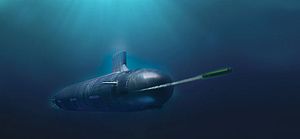As part of the overall $1.4 billion U.S. arms sale to Taiwan, the U.S. Department of State approved on June 29 the possible of sale of 46 advanced MK-48 Mod 6AT heavyweight torpedoes, the Defense Security Cooperation Agency (DSCA), the Pentagon’s lead agency for arms sales to allied countries, announced in a press release.
“This sale will include HWT [heavyweight] containers, torpedo support, torpedo spare parts, publications, training, weapon system support, engineering and technical assistance. The total estimated program cost is $250 million,” the statement reads. The torpedo sale is still subject to congressional approval.
“This proposed sale serves U.S. national, economic, and security interests by supporting the recipient’s continuing efforts to modernize its armed forces and enhance its defensive capabilities,” the press release continues. “The proposed sale will help improve the security of the recipient and assist in maintaining political stability, military balance, and economic progress in the region.”
The sale of the torpedoes was first requested by Taiwan during the presidency of George W. Bush. A first sign that the deal might move forward was that funds for the procurement of MK-48 heavyweight torpedoes were included in Taiwan’s 2016 defense budget request, as I reported in September 2016.
Once delivered, the torpedoes will be installed aboard the Republic of China Navy’s (ROCN) two Hai Lung-class (improved Dutch Zwaardvis-class) diesel-electric submarines, the navy’s only two remaining subs next to two World War II-era U.S.-made Guppy-class boats.
The two Hai Lung class submarines — the Hai Lung (Sea Dragon) 793 and Hai Hu (Sea Tiger) 794 — are currently undergoing a $12.35 million life extension upgrade, overseen by the military-run Chung-shan Institute of Science and Technology. The submarines are scheduled to return to active service in 2020.
Interestingly, the torpedoes will come from existing U.S. Navy stock. In order to supply the MK-48 torpedoes to Taiwan, U.S. defense contractor Raytheon would have had to restart production and it would have taken several years until additional torpedoes could have been produced.
According to Raytheon, the MK-48 torpedo is capable of engaging targets in both littoral and deep-water environments. “The torpedo is capable of autonomous operation or control via wire link, Software-based guidance and control enables autonomous operation, ‘fire and forget’ tactics, simultaneous multiple target engagement and close-in attack. MK 48 quieting technology … significantly reduces self-noise to enable covert deployment and minimize detection,” the defense contractor’s website states.
China Shipbuilding Corporation (CSBC), Taiwan’s largest shipbuilder, and the Chung-shan Institute of Science and Technology signed a memorandum of understanding with the ROCN for the construction of a still to be determined number of diesel-electric attack submarines in March.
The first phase of this so-called Indigenous Defense Submarine (IDS) program “consists of completing design work on Taiwan’s new class of attack subs for the government allocated approximately NT$2 billion ($65.66 million),” I reported earlier this year. “The second stage entails the construction of the new boats with the ambitious goal of finishing construction in eight years and commissioning the subs into service with the ROCN within a decade.”































